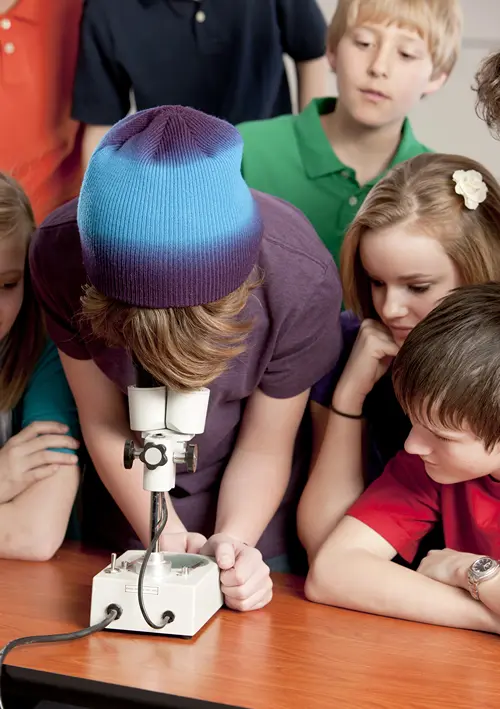Choosing a private school is stressful anywhere. Choosing one in a city that has grown as fast as this one comes with its own set of variables that parents in other places don’t necessarily deal with.
The area has expanded quickly, the educational landscape is still evolving, and the range of private options runs from tiny mission-driven schools operating out of shared community spaces to large, well-endowed prep academies with waitlists and entrance exams.
Sorting through all of it while trying to figure out what’s actually best for your kid can feel overwhelming before you even schedule your first tour.
But it doesn’t have to be a shot in the dark. If you know what to look for and what questions to ask, the process gets a lot more manageable. Here’s how to approach it.
Understand Why You’re Looking at Private Schools in the First Place
This sounds obvious, but it’s a step a lot of parents skip. They decide they want private school and immediately start comparing tuition rates and campus photos without ever getting clear on what problem they’re trying to solve or what outcome they’re hoping for.
Are you looking for smaller class sizes because your child isn’t getting enough individual attention? Are you drawn to a specific educational philosophy that the public schools in your area don’t offer? Is it a values-based decision where you want a school rooted in a particular character framework? Are you concerned about safety, academic rigor, social environment, or all of the above?
Getting honest about your motivations matters because it shapes everything that comes after. A family looking for a rigorous college-prep track is going to evaluate schools differently than a family whose primary concern is finding a nurturing environment for a kid who’s been struggling socially. Both are valid reasons to look at private schools. But they lead to very different shortlists.
Get Familiar With What’s Actually Available
This metropolitan area has a broader range of private schools than most people outside it realize. The options break down into a few general categories, and understanding those categories helps narrow the search before you start scheduling campus visits.
Values-driven and tradition-rooted schools make up a significant portion of the private school landscape. There are well-established legacy institutions along with smaller community-founded programs spread across the valley. These schools often integrate character development, ethical learning, and community expectations into the academic experience to varying degrees. Some are deeply immersive in their institutional philosophy. Others take a lighter approach and welcome families from a wide range of backgrounds. If this is a direction you’re considering, it’s worth asking directly how central those values are to daily school life, because the range is wider than you might expect.
College-preparatory schools focus primarily on academic outcomes. They tend to have more rigorous admissions processes, higher academic expectations, and structured programs designed to position students for competitive college admissions. These schools often offer extensive AP coursework, standardized test preparation, college counseling, and the kind of transcript-building infrastructure that families focused on elite university placement are looking for.
Then there are schools that define themselves by a particular educational approach. Montessori programs, which emphasize self-directed learning and mixed-age classrooms, have a presence in the elementary level across the valley. There are also schools built around project-based learning, experiential education, or specific areas of focus like STEM or the arts.
And there are community-oriented private schools that prioritize creating a close-knit, supportive environment above all else. Schools like Embrace Academy focus on building the kind of personalized, relationship-driven educational experience that’s hard to find in larger institutions. For families whose top priority is knowing that their child is seen, known, and supported as an individual rather than processed through a system, these smaller schools often deliver something that the bigger names in the area simply can’t replicate at scale. It’s a different value proposition, and for the right family, it’s exactly the right fit.
Visit the Campus and Pay Attention to What You Feel
Websites and brochures will only tell you so much. Every private school here has a marketing message, and every one of them will tell you they offer small classes, dedicated teachers, and a commitment to the whole child. The only way to evaluate those claims is to walk through the building and see it for yourself.
Schedule tours at your top three to five schools. Bring your child if the school allows it. And while you’re there, pay attention to more than just the facilities.
Watch how the students interact with each other and with the adults in the building. Are they engaged or going through the motions? Is the atmosphere warm or rigid? Do the teachers seem like they genuinely enjoy being there, or does the energy feel transactional? These are things you pick up on instinctively, and your gut reaction to a school’s culture is worth taking seriously.
Look at the physical space with practical eyes. Are the classrooms well-maintained and appropriately equipped? Is there outdoor space for younger kids? Does the school have dedicated areas for arts, science, or physical education, or is everything crammed into multipurpose rooms? Facilities don’t make or break a school, but they tell you something about where the institution is investing its resources.
Ask to sit in on a class if possible. Seeing a lesson in progress gives you a more honest picture of what daily life looks like than any scheduled presentation or admissions event ever will.
Ask the Right Questions
The admissions process is a two-way street, and parents who treat it that way tend to make better decisions. You’re not just auditioning for a spot. You’re evaluating whether this institution deserves your trust and your money. Come prepared with questions that go beyond the surface.
What is the student-to-teacher ratio, and does that ratio hold across all grade levels? Some schools advertise small class sizes in the lower grades but let them balloon by middle or high school. Get the actual numbers.
What is the teacher retention rate? High turnover is a red flag in any school, but especially in a private school where relationships between teachers and families are supposed to be a core part of the value. If teachers keep leaving, something about the culture or compensation isn’t working, and your child will feel the effects of that instability.
For a comprehensive list, visit these 12 questions to ask private schools during tours and interviews.
Factor In the Full Cost, Not Just Tuition
Private school tuition here ranges widely. You might find smaller programs in the range of five to eight thousand dollars a year at the elementary level, while the most established prep schools can run twenty thousand or more at the upper grades. But tuition is rarely the whole picture.
Ask about fees beyond the published tuition number. Registration fees, technology fees, activity fees, uniform costs, field trip contributions, fundraising expectations, and the cost of required materials can add up to a meaningful amount on top of the base price. Some schools include lunch in tuition. Others don’t, and the cost of daily meals or a meal plan adds another line to the annual budget.
Ask about financial aid. Many private schools offer need-based aid, merit scholarships, or sibling discounts. Some are genuinely committed to economic diversity and have substantial aid budgets. Others offer minimal assistance. Don’t assume you won’t qualify without checking, and don’t assume the published tuition is the final number without asking what’s available.
Also think about the indirect costs. A school that’s thirty minutes from your home means an hour of driving every day. A school that doesn’t offer after-care means arranging separate childcare for the afternoon. These logistical realities have real financial and quality-of-life implications that are easy to overlook when you’re focused on the educational merits.
Think About the Local Factor
The primary public school district serving this area is one of the largest in the country, and its reputation is mixed. That reality drives a lot of families toward private options who might not consider them in other markets. It also means the demand for private schools is strong, and some of the more popular ones fill up fast. If you’re eyeing a specific school, start the process early. Waiting until summer to explore options for a fall start can leave you scrambling.
The geography of the valley matters too. The metro area is spread out, and traffic patterns during school drop-off and pick-up hours are no joke. A school that looks perfect on paper but adds forty-five minutes to your morning commute every day is going to wear on the whole family. Factor in where the school sits relative to your home, your workplace, and any after-school activities your child is involved in. Proximity isn’t everything, but it’s more important than most parents give it credit for when they’re caught up in the excitement of finding the right academic fit.
The desert climate also plays a small but real role. Schools with good outdoor facilities, shaded play areas, and indoor recreation options for the hottest months are thinking about the student experience in a way that matters practically. It’s a small detail, but it’s the kind of thing you notice when your kid is at school eight hours a day in August.
Consider the Long Game
The best school for your child in kindergarten might not be the best school for them in fifth grade or ninth grade. Kids change. Their needs evolve. The social dynamics that work for a six-year-old are completely different from the ones that matter to a twelve-year-old.
Some private schools run K through 12 and offer the stability of a single community for the entire educational journey. Others cover only the elementary or middle school years, which means you’ll be making this decision again at some point. Neither model is inherently better, but it’s worth thinking about how each option fits into the longer arc of your child’s education.
Also consider how the school positions your child for whatever comes next. If the goal is a competitive college, does the school’s track record support that? If the goal is a well-rounded, confident kid who’s ready for the world, does the school’s culture and programming reflect that priority? The answer to those questions matters more than the name on the diploma.
Trust the Process, but Trust Yourself More
There’s no shortage of opinions when it comes to schools. Other parents will tell you where to send your kid. Online forums will rank every school based on criteria that may or may not align with what your family actually cares about. Admissions directors will make compelling pitches designed to close the deal.
All of that input has value, but none of it replaces your own judgment. You know your child. You know your family’s priorities, limitations, and values. The school that’s perfect for your neighbor’s kid might be completely wrong for yours, and that’s fine.
Do the research. Visit the campuses. Ask the hard questions. Run the numbers. And then make the decision that feels right based on everything you’ve learned, not based on what looks most impressive to the outside world.
Private schools in this market provide families with a lot of options. Most families can find a genuine fit if they’re willing to invest the time in looking. The key is knowing what you’re looking for before you start, and being honest with yourself about what matters most when you finally have to choose.









